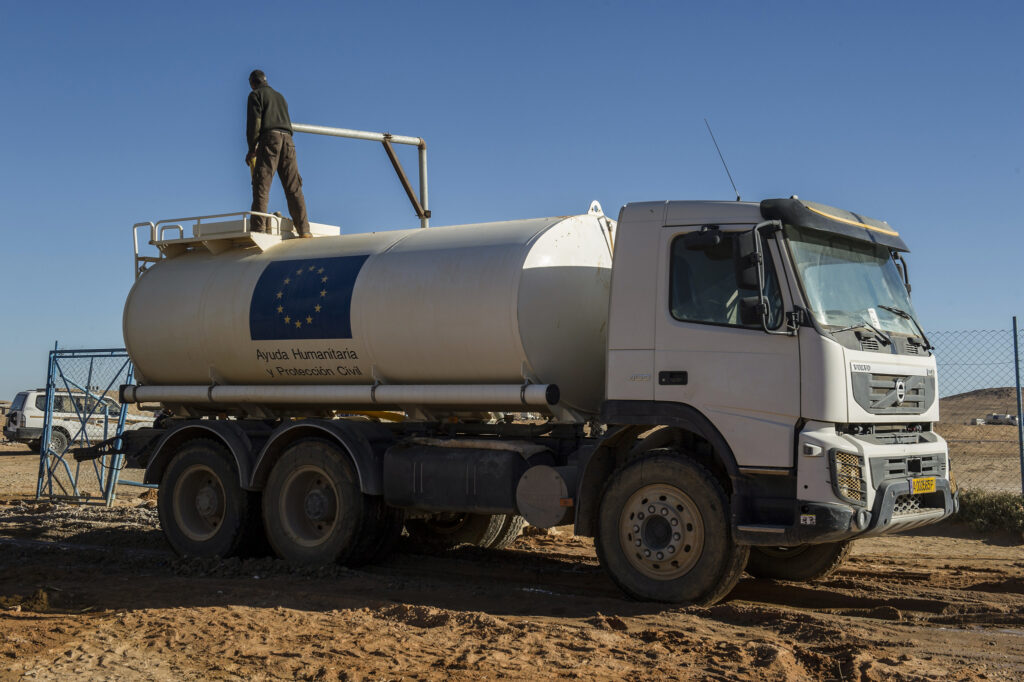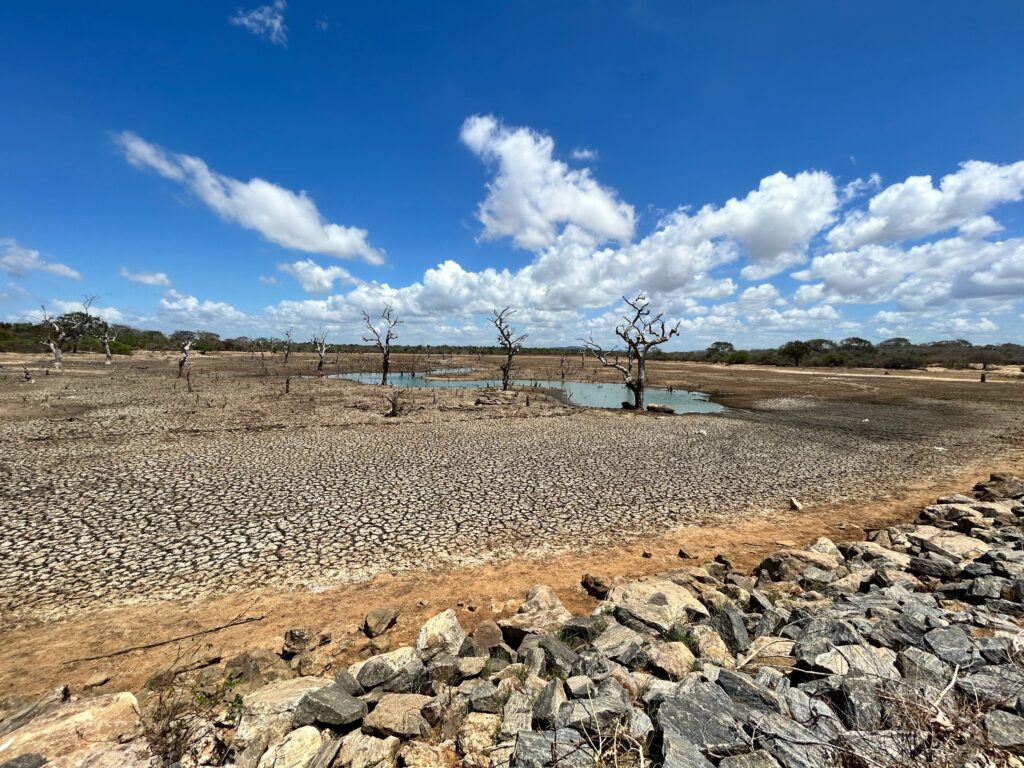Council of the EU. Signing ceremony of the OACPS-EU agreement (Samoa Agreement). https://www.consilium.europa.eu/en/media-galleries/international-ministerial-meetings/2023-11-15-acp-eu/ Accessed November 29, 2023.
In a significant diplomatic development, the European Union and its member states have formalized a pivotal partnership with the Organisation of African, Caribbean, and Pacific States (OACPS). Known as the Samoa Agreement, this accord is the successor to the longstanding Cotonou Agreement, and encompasses several subjects, notably sustainable development, human rights, and peace and security.
The provisional application of the Samoa Agreement is set to commence on January 1, 2024. It will enter into force after consent by the European Parliament and ratification by all parties involved, including at least two-thirds of the OACPS Members and all EU member states. Born out of post-Cotonou negotiations that began in 2018, this agreement is a strategic response to the evolving landscape of international cooperation.
The origins in the Cotonou Agreement
The Cotonou Agreement, signed in 2000, was an innovative partnership between the EU, then made up of only 15 member states, and 79 African, Caribbean, and Pacific states. At its core, the agreement aspired to be a catalyst for poverty eradication while fostering sustainable economic, cultural, and social development within the partner countries. A key feature of the Cotonou Agreement was its commitment to equality among the partners, with ACP countries retaining autonomy in determining their own development policies. Emphasizing flexibility, the agreement tailored cooperation arrangements and priorities based on the diverse levels of development across participating countries, and involved more stakeholders than governments and public administrations. The private sector and economic and social partners had a role in development cooperation too.
The operationalization of the agreement was made possible by Joint institutions. The ACP–EU Council of Ministers, supported by the Committee of Ambassadors, assumed the responsibility of conducting political dialogue, adopting policy guidelines, and making decisions to implement the agreement. This collaborative effort extends further with the ACP–EU Joint Parliamentary Assembly, a consultative body providing recommendations on the achievement of the agreement’s objectives. The Joint ACP–EU Ministerial Trade Committee and the ACP–EU Development Finance Cooperation Committee played specific roles in addressing trade-related issues and monitoring the implementation of development finance cooperation, respectively. Altogether, the agreement served as a comprehensive framework that extends beyond economic dimensions, delving into the political realm by promoting human rights, democratic principles, peacebuilding, conflict prevention, and addressing security challenges, including counterterrorism and non-proliferation of weapons of mass destruction. Additionally, the Cotonou Agreement outlines specific activities aimed at boosting economic development, social and human development, and regional cooperation. These activities were funded through the European Development Fund.
The Cotonou Agreement was revised in 2005, 2010 and 2017. The last revision reflected the agreement’s adaptability, addressing contemporary challenges such as climate change, food security, HIV/AIDS, sustainability of fisheries, and the pursuit of the UN Sustainable Development Goals.

EU-OACPS relations today
The EU’s relations with third countries are influenced by changing geopolitics, whose rhythms create new prospects for partnership and cooperation. In turn, economic dynamics are being reshaped in a multipolar world, as a diverse range of international actors are offered new incentives for investment and exchange. Strategic adjustments are also impacted by climate change and environmental cooperation. Overall, this evolving scenario requires diplomacy and a framework for cooperation, which the Samoa Agreement seeks to achieve.
Representing around 2 billion individuals and more than half of United Nations seats, the Samoa Agreement is poised to play a pivotal role in international relations. Its impact is expected to extend beyond the signatory nations, with implications for the global stage.
Among its priorities, the agreement underscores the significance of human rights, democracy, human security, countering terrorism, social cohesion and socio-economic empowerment of marginalised groups, the fight against climate change and migration and mobility. Additionally, the agreement is further nuanced by three region-specific protocols calibrated to the distinctive needs of Africa, the Caribbean, and the Pacific. This tailored structural approach is a testament also to the extensive negotiations that started in September 2018 to draft an updated treaty to the 2000 Cotonou Agreement.

To actualize the agreement, distinct methods of cooperation and implementation are delineated with the principle of “leaving no one behind”. Cooperation between states can take different forms, including policy support, technical measures, capacity building, and various financing methods like budget support and blending operations. While the EU shall mobilise resources to support programmes in African, Caribbean and Pacific states for regional and intercontinental cooperation, the OACPS states commit to enhancing domestic resource mobilization, by modernizing tax systems and integrating the informal sector into the formal economy.
Further, all states agree to combat illicit financial flows and enhance fiscal legitimacy through efficient public expenditure. They will also cooperate to spur sustainable investment and align private sector incentives with public goals. Simultaneously, the EU and OACPS commit to making debt sustainable through coordinated policies, assisting countries in building debt management capacities, and participating in internationally approved debt relief initiatives.
The agreement also establishes a Council of Ministers, a Joint Committee and a Parliamentary Assembly for each of the regional protocols. The heightened parliamentary dimension, bolstered by the inclusion of new regional assemblies, will expand the engagement of both the public and civil societies. In various capacities and formats, these joint intergovernmental institutions have the function to make recommendations, provide policy guidance, and foster cooperation and understanding of the agreement.

However, the significance of the Samoa Agreement was somewhat tempered as only 44 out of the 79 participating countries from the OACPS were ready to sign the deal into provisional application during the ceremony in Samoa at the 46th meeting of ACP-EU Council of Ministers. This does not meet the qualifying proportion of two-thirds for the Samoa Agreement to enter into force, however the agreement is still open to signatures by OACPS. Georges Chikoti, the OACPS Secretary-General, explained that some member nations required additional time for debate and approval within their national parliaments.
Implications for Governments
- Ratification and policy alignment: Governments involved in the Samoa Agreement will need to align their national policies with the shared principles outlined in the accord. This alignment becomes crucial not only to ensure effective implementation but also to foster regional cooperation. With the inclusion of region-specific protocols, governments are prompted to address the distinctive needs of their regions, encouraging tailored policy approaches that reflect the diversity within the OACPS.
- Implementation challenges and strategies: all signatories should investigate potential challenges in implementing the Samoa Agreement and delve into strategies devised to overcome them. For a smooth and effective execution of the agreement, signatories may plan to navigate challenges ahead.
- Monitoring and evaluation mechanisms: Signatories may plan to assess progress and measure the impact of the agreement on the identified priority areas of human rights, economic development, and environmental sustainability.
Implications for Private Firms
- Adaptation to sustainable practices: The Samoa Agreement’s focus on sustainable development, environmental sustainability, and climate change necessitates a shift towards eco-friendly practices for private firms. Businesses will likely face increasing pressure to align their operations with the accord’s environmental goals, fostering a need for innovation and adaptation to sustainable business practices. This could lead to new market trends and opportunities in the green economy.
- Expansion opportunities: Private firms could benefit from a more open and interconnected market, leading to increased opportunities for expansion and collaboration across borders. Businesses may need to strategically position themselves to leverage these new market dynamics, exploring partnerships and investment opportunities within the regions covered by the agreement.
- Engagement with joint institutions: The establishment of the Council of Ministers, Joint Committee, and Parliamentary Assembly implies a more structured and engaged approach to governance. Firms may need to navigate and engage with these institutions to understand policy directions, provide input, and ensure compliance with evolving regulations.
- Financial management: Firms may need to ensure transparent financial practices, participate in efforts to curb financial crimes, and align with international standards for responsible financial management. The agreement’s provisions on making debt sustainable and participating in debt relief initiatives means financial services may need to adapt to changes in lending practices, and businesses operating in countries receiving financial support may experience shifts in economic conditions.
In sum, the Samoa Agreement holds significant implications for both governments and private firms. Governments must align national policies, address implementation challenges, and establish monitoring mechanisms. Private firms face pressure to adopt sustainable practices and can benefit from an open market, leading to expansion opportunities and the need for strategic positioning in African, Caribbean and Pacific states. Private firms may likely change to ensure transparent financial practices, considering potential shifts in economic conditions.

